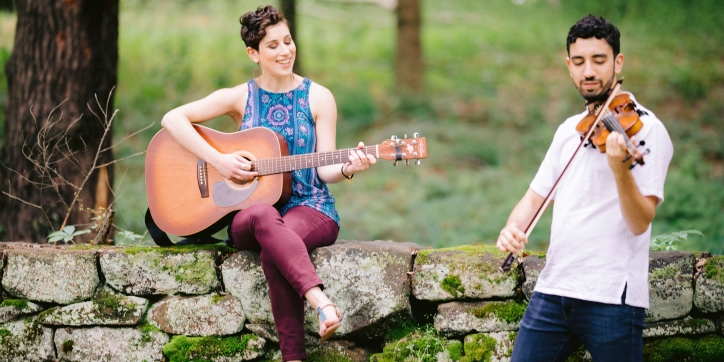Jewish learning Ep #9: When the Walls of Metaphor Can’t Hold
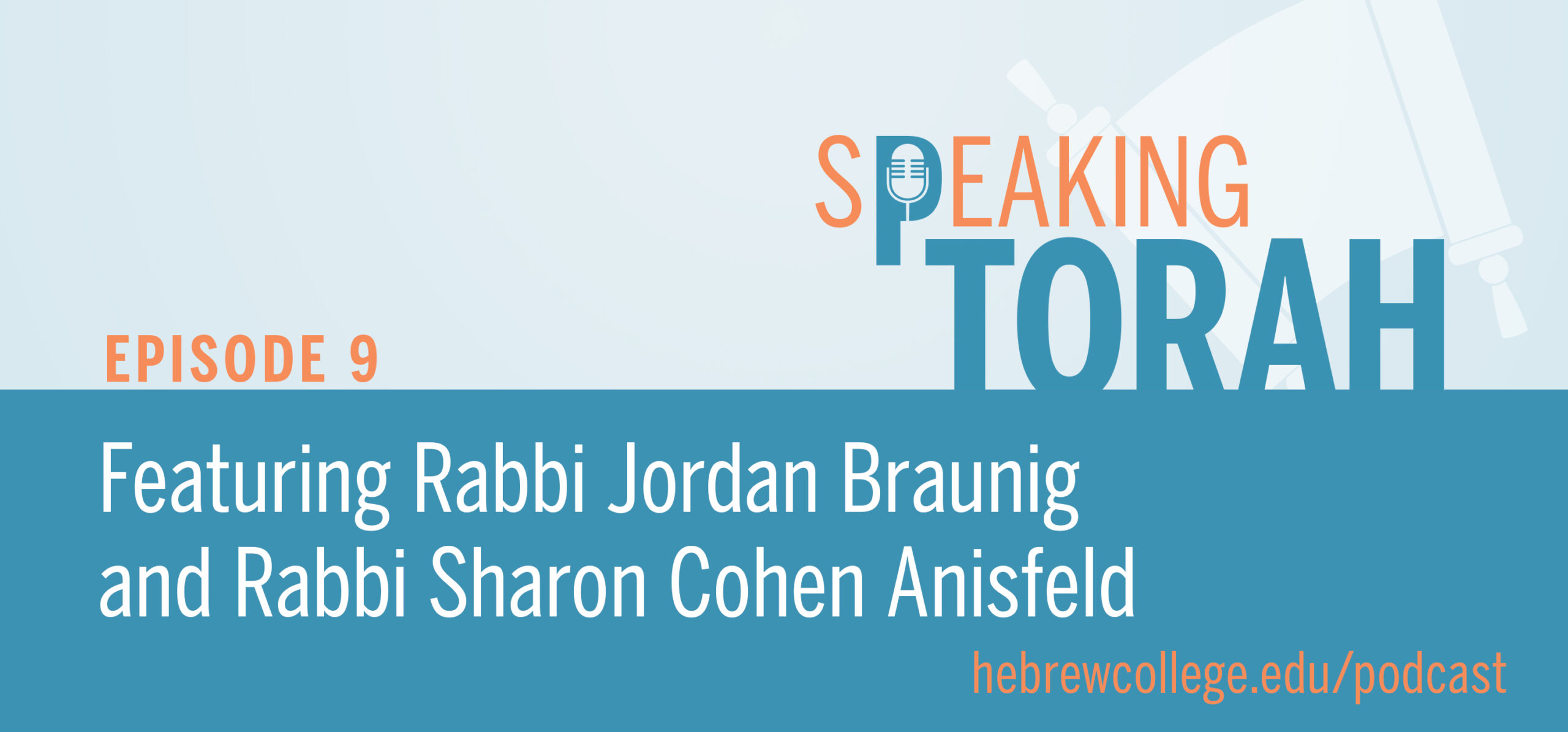
What [Jordan’s] asking in a sense, by asking what happens when the walls of metaphor can’t hold us, is what happens to our religious language and our religious practice when it’s up against the wall? What happens when it has to withstand what he calls the ‘winds of life’ that shake us to our core? Does it have anything to offer at all?
– Rabbi Sharon Cohen Anisfeld
In this installment of Speaking Torah, Rabbi Jordan Braunig brings us into an unsettling and deeply personal story of love and fragility, giving us an account of a time when it’s so difficult to express the complexity of emotion, that even the walls of metaphor cannot hold.
Rabbi Jordan Braunig is a teacher, pastoral caregiver, and an organizer of community. He is currently Jewish Chaplain at Emory University. Prior to this, he was a Campus Rabbi and Director of Community Building at Tufts University Hillel. Jordan’s essay is read by Rabbi Sharon Cohen Anisfeld, President of Hebrew College.
In this episode, Sharon reads a personal story Jordan wrote two years ago about a family incident. A story raw with emotion and questioning, but also, ultimately, one that has led to a journey of new perspective and resilience.
What You’ll Discover from this Episode:
- What Jordan means when he’s asks: what happens when the walls of metaphor can’t hold?
- What compelled Jordan to write about something so personal and traumatic.
- Why Sharon is grateful to Jordan for being willing to ask these questions about our religious language.
- How Jordan’s story can teach us about the fragility of human life and its relationship to Sukkot, when these events in the story took place.
Featured on this Episode:
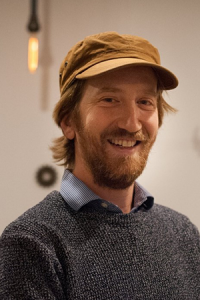
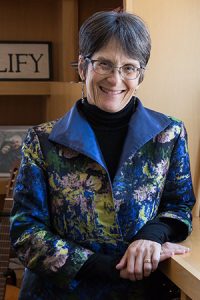
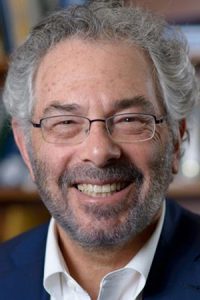
A special thank you for this episode’s musical contributions:
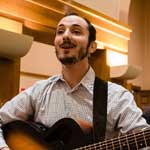
Jackson is an Ordination Candidate at the Rabbinical School of Hebrew College in Newton, MA. He grew up at Congregation Rodef Sholom in San Rafael, CA where he cultivated a love of Judaism, embolden with music, spirituality and justice.
Esa Einai (Psalm 121:1)
Music by Jackson Mercer
Guitar and Melody by Jackson Mercer
Harmonies by Cantor Rosalie Will, Ilana Sandberg, Rabbi Micah Shapiro, Rabbi Josh Warshawsky, Noah Diamondstein, Ryan Leszner, Eliana Light.
Outro by: Leah Carnow and Yoni Battat
Leah Carnow is a rabbinical student in her second year of school at Hebrew College. Originally from Los Angeles, Leah has lived in the Boston area for ten years, where she also teaches yoga and works as the Rabbinic Intern and Vocalist at Temple Sinai in Brookline. Prior to beginning rabbinical school, Leah worked in regional and fringe theater as an actor and director. During the summer of 2020, she served as the rabbinic intern for the PsalmSeason project.
Yoni Avi Battat is a Boston-based multi-instrumentalist, vocalist, and composer specializing in contemporary and traditional Jewish music from Eastern Europe and the Middle East.
Ruach Nedivah
With words from Psalm 51:13
Performed and composed by Leah Carnow and Yoni Battat
To hear more of the music Leah and Yoni have created together, visit https://leahandyoni.bandcamp.com.
Welcome to Speaking Torah. I’m your host Rabbi Jeffrey Summit, Director of the Innovation Lab at Hebrew College. In this podcast, leaders from Jewish communities around the country read essays by Hebrew College Rabbis and leaders. These essays tackle the pressing issues of our world that’s so in need to healing and hope, and they do so with Hebrew College’s signature compassion, creativity, and relevancy.
This week, Rabbi Jordan Braunig brings us into an unsettling and deeply personal story of love and fragility. A time when it’s so difficult to express the complexity of emotion that even the walls of metaphor cannot hold.
Jordan’s essay is read by Rabbi Sharon Cohen Anisfeld. Rabbi Sharon Cohen Anisfeld is President of Hebrew College and previously served as Dean of the Rabbinical School for 11 years. She spent 15 years working in pluralistic settings, as a Hillel Rabbi at Tufts, Yale, and Harvard Universities, and is coeditor of two volumes of women’s writings on Passover.
Rabbi Jordan Braunig is Jewish Chaplin at Emory University. Prior to arriving at Emory in September 2020, he was a Campus Rabbi and Director of Community Building at Tufts University Hillel, where I was blessed to be his colleague for many years.
Teacher, a pastoral caregiver, and an organizer of community, Jordan received his Rabbinic Ordination and Masters of Jewish Studies from Hebrew College in 2014.
Now, here’s Rabbi Sharon Cohen Anisfeld reading Jordan’s essay; When the Walls of Metaphor Can’t Hold.
—
Rabbi Sharon Cohen Anisfeld: I often tell my students that Judaism invites you to reside within the metaphor; to push the weight of your body against the gates as Yom Kippur draws to a close, to recline into freedom on Pesach, to empty your pockets and surrender to merely being on Shabbat.
We have a way of transforming the figurative into the lived, and in so doing experiencing the sacredness of time in an embodied way. We Jews make our way into metaphors. We luxuriate within them and we pray that their fragile walls will hold.
And, sometimes, the winds of life are too much for our symbols to withstand. Last year, on the third day of Sukkot, back at work, I received a call from Casey at 3:10 in the afternoon. I stood behind the front desk at Tufts Hillel, casually holding the receiver as she said into my ear, “Jordan, I’m at the Pimentel market and I was just shot. You need to pick up the kids from school.”
How long did it take for those words to sink in? It must have been only seconds. Less. How long does it take for the shape or your life to twist and shift, to become something altogether different?
I would call the hours that followed a blur, except that there are memories embedded within that time that are exceedingly clear. Being in the car of a friend who rushed me towards Longwood as a paramedic on the phone from the ambulance assured me that Casey was going to be okay. I spoke with the principal of our children’s elementary school whose voice cracked as she assured me that they would watch our kids for as long as it took.
I was escorted by a police officer and a nurse down a hospital corridor to an emergency bay where Casey lay, blood drying on her temple and under her jaw. She’d been hit by glass from where bullets had pierced the front door of the corner store. She was no longer bleeding. She told me to go, to pick up the kids. I left, but stopped home along the way.
Walking three doors down to the market, still surrounded by caution tape and loitering police officers, I stood and stared at the bullet holes in the glass. It was unfathomable to think that Casey had been only a few feet behind that door, standing at the counter, purchasing chips for our kids as an after-school snack. Four shots had been fired. She had been right there.
My kids were still playing on the playground with the afterschool crowd on the sunny September afternoon when I arrived. It had barely registered as odd that they were being watched by our five year-old’s kindergarten teacher; she was a friend, after all. They greeted me warmly, but then they wanted me to go away. Kathy had promised to take them for pizza and maybe even for an icee.
I assured them that all promises that had been made would be kept. I said that mama would be home a little later. No one asked anything else. We walked to the pizza place and ate. I watched them; carefree, chatting, giggling, chewing on the crust. We did not get icees, but I promised a stop at the grocery store for a treat.
Inside the Stop & Shop we walked towards the ice cream. I looked back as they trailed behind me in descending order of height and age. I felt like a duck or a goose, my chicks following behind me. And I felt the intense urge to cry. It was only a matter of inches, the tilt of the wrist firing a handgun and I would be alone with my goslings.
I can conjure up that image of them behind me, even now, and feel immense gratitude and, at the same time, the desperate precariousness of it all.
Staring at the expansive case of popsicle options, my eldest asked if we could get the Sour Patch brand pops. He was surprised when I said yes. What he didn’t know was that he could have had the whole case, hundreds of dollars’ worth of corn syrup and yellow dye; I would have gotten it all.
We returned home and the kids ate their Sour Patch popsicles in our sukkah under the moonlight. Casey came home while we were out there and the kids casually greeted her, barely registering the spots where she had been hit and with no idea of the tragedy that had narrowly been avoided.
The sukkah is a symbol of fragility. Yet, our family together, momentarily, within these non-walls, what I longed for was not permeability, but for more protection. I know what the sukkah is meant to teach, that it’s possible to be more vulnerable and more joyful in the same moment, the same space.
Yet, sometimes life arrives and topples the metaphor, transforming a wall back into an old tapestry, a roof into a few cut branches. What I can say, is that on this particular night, the rhythms and the symbols of the Jewish year did keep us from retreating into our house, of trying to deal with this on our own.
Instead, we immediately reached out to our community of friends, family, co-workers, parents in our neighborhood, mental health care professionals, anyone and everyone who could help us process this. It is easy for trauma to lead to shame and we did our best to not let this happen.
A week and a half later, Casey was called for an aliyah at our synagogue and came up to the Torah holding our three-year-old in her arms. After the Torah had been chanted, she offered the blessing and then she quietly and calmly benched Gomel, reciting the traditional blessing for someone who has survived an ordeal.
Her mom and I sat amongst the community, each of us weeping, barely able to respond, “May the One who has repaid you with all goodness, continue to reward you with all goodness forever.”
—
Rabbi Jeffrey Summit: What did you think of Jordan’s essay?
Rabbi Sharon Cohen Anisfeld: Well, I just love the way Jordan writes and thinks. And among his many pieces of writing that I love, I think this is one of the most powerful, even now, two years after he first wrote it – I think about two years – and I first read it, I can’t ready it without getting choked up.
Of course, part of that is because of my own feelings for Jordan and Casey and their family. But it goes beyond that for sure. And I think there are three things in particular that I want to highlight that move me about the piece.
The first is just the quintessential quality of understatement that is characteristic of so much of Jordan’s writing. But it’s all the more devastating here because of the enormity and intimacy of his subject. In fact, the title he chose for the piece, When the Walls of Metaphor Can’t Hold, it’s striking to me because it’s precisely his ability to hold so much emotion with such rigor that I think gives his writing its power.
There’s a way in which Jordan’s capacity to simultaneously convey and contain his own emotion that gives the reader room to feel the full impact of the story and its meaning more fully.
The second thing I want to mention is the honesty and specifically the religious honesty that’s also characteristic of so much of the way Jordan not only writes but moves in the world as a rabbi and as a human being. And in this piece, that honesty takes on a whole new level of urgency.
What he’s asking in a sense, by asking what happens when the walls of metaphor can’t hold us, is what happens to our religious language and our religious practice when it’s up against the wall? What happens when it has to withstand what he calls the winds of life that shake us to our core? Does it have anything to offer at all?
When we’re at our most fragile, when we’re at our most vulnerable, does our religious language hold up as our religious practice holds up? Does it have anything to say at all?
And I deeply respect the fact that Jordan is willing to ask these questions. It makes me trust him as a rabbi and as a religious person. And I love that his answer, without any rancor, is sort of yes and no.
He’s honest with us about the fact that he did not sit with his family in the sukkah that night and rejoice in the vulnerability of it all. Impossible. And he describes himself sort of left looking at an old tapestry and a few cut branches.
But yes, he also says the sukkah did keep them from retreating into their home physically and sort of metaphorically from retreating into the privacy that can so easily bleed into shame in the aftermath of trauma.
And then, I think there’s an even deeper, even more powerful unspoken yes in the final paragraph of the piece when Jordan describes Casey benching Gomel and describes himself sitting with her mom, amongst the community, weeping as they said the words that finally could and did provide a container for what they needed to say in that moment, which was basically, “You’re alive, thank God, and please, God,” all at once.
So, the last thing I would highlight about the piece is I just have to mention Jordan’s humor, even here, even in this moment of trauma and this narrowly-averted tragedy.
So, the thing about Jordan’s humor, aside from the fact that it’s just very, very funny, is that it’s also so generously human. And I think about this all the time. I cannot think of a time in all the years that I’ve known Jordan that his humor has ever been at another person’s expense.
But in the context of this piece, one of my favorite moments is when he describes his eldest asking for the Sour Patch brand pops and Jordan says, “He was surprised when I said yes. What he didn’t know was that he could have had the whole case, hundreds of dollars’ worth of corn syrup and yellow dye.”
And what parents among us can’t relate to that moment? That’s what I mean by the sort of generosity with which he speaks to our humanity.
—
Rabbi Jeffrey Summit: We asked Jordan, what made him write this essay.
Rabbi Jordan Braunig: I wrote this piece partly because I didn’t want to forget the ordeal. I mean, you do want to forget, but you also want to remember it very clearly; everything. The gratitude, the vulnerability of the precariousness of each moment.
There’s something that’s somewhat paradoxical in our relationship to trauma, that in order to process it and to move past it, there’s a lot of remembering required. Also, I’m living right now, so the level of gun violence in this country is just staggering and you can be numbed by the daily reports of shootings.
And I feel that same sense of ever-present fear that I feel like so many Americans have just learned to live with; kind of go on living. And it takes a moment sometimes to recall that our lives were touched by it or skimmed by it.
I feel like, at the time, we were limited in how much we could own this near tragedy. We have little kids. We didn’t want to scare them to make our trauma theirs. And we were continuing to live three doors down from where this had happened, at this store.
So, we chose not to share it with them, which led to a little bit of quiet around it, that wasn’t out of shame, but was out of trying to be protective. In some ways, we didn’t fully process that such an intense and horrific incident had affected us because we didn’t have the space fully. But I wanted to record it, to write about it so that intensity and the fear and the dumb luck of it all wouldn’t fade from our consciousness.
I think rereading the piece, I recognize that there’s a way in which my relationship towards Sukkot has shifted because of this event. I still love the holiday and the DIY nature of it, the two by fours and the fact that my Sukkot’s a little different every year. And I like that it’s this Z’man Simchateinu, this season of joy. And I do experience a lot of that real happiness during the week. But I also feel the fragility really fully.
The Sages in the Talmud assert that a Sukkah needs to be a dirat arai, a temporary structure. And since that year, I’ve had a sense that the real message of the chag, its essence, is to recognize that all of our life is a dirat arai, a temporary structure that we pack with love and family and community, but with a deep instability built into it as well.
And that way, observing all of this in retrospect, I think the metaphor that – I say in the piece that metaphor can’t hold, but looking back on it somehow it feels like, “Oh, there’s that metaphor again. There’s that fragility.” And I can live with it and I don’t have to sort of reject it and push it away because it can’t handle the intensity of the lived experience because maybe time has a way of softening our experiences.
So, in a Sukkot I feel happy and satisfied and like I recognize that the winds of this world are strong and unpredictable, and I don’t know, maybe during Sukkot, maybe all of our lives were working on dealing with that shakiness and that instability and trying to love and to be content and to feel a sense of peace, even when we see that things aren’t quite as steady as we might want them to be.
Rabbi Jeffrey Summit: How do you feel about Sharon reading your piece?
Rabbi Jordan Braunig: When I write any D’var Torah, I think there’s a way in which I’m trying to emulate the voice of my teacher, Sharon Cohen Anisfeld. So, hearing her read a piece of mine feels like a strange type of wish-fulfilment.
I think that Sharon and I share a belief that the poetic and the straightforward, the sacred and the mundane, the Peshat and the Derash are all in dynamic relationship with one another. And while I’m not a Hasid and I don’t even really call myself a Neo-Hasid, if I were to have a rebbe, someone who walks in the world in the way that I want to walk, it would be Sharon. So, I’m honored to hear her read the piece.
Also, I’ll say about Sharon, when she reads something, whether it’s a D’var Torah she’s written or a poem by Wallace Stevens, you can just feel it in her voice. You can feel the connection to the heart.
—
Rabbi Jeffrey Summit: Thank you for joining us for this episode of Speaking Torah. We want to thank Emily Hoadley for our logo, and Hebrew College Rabbinical student and composer Jackson Mercer for our theme music Esa Einai. To learn more about Hebrew College, please visit hebrewcollege.edu/podcast. And remember to subscribe, like, and rate Speaking Torah on Apple Podcasts, Spotify, or wherever you listen to podcasts.
We’ll leave you this week with Ruach Nedivah, composed and performed by Hebrew College rabbinical student Leah Carnow and Yoni Battat, with words from Psalm 51:13. I’m your host Rabbi Jeff Summit. I look forward to being together next time on Speaking Torah.
Enjoy the Show?
- Don’t miss an episode, follow the podcast on Spotify, Apple Podcasts, Stitcher, or RSS.
- Leave us a review in Apple Podcasts.


